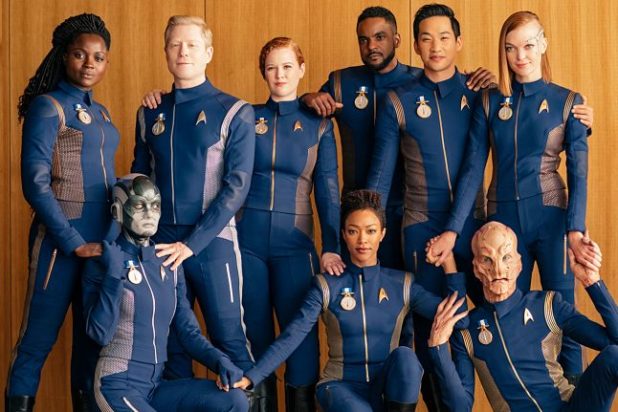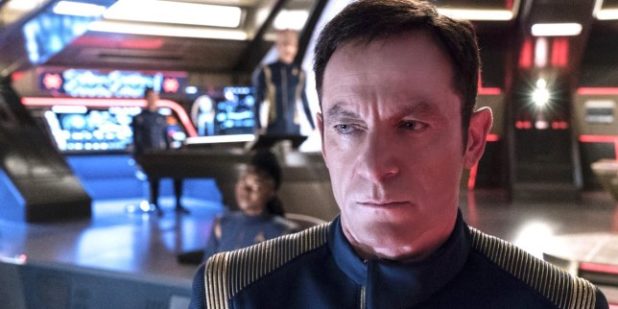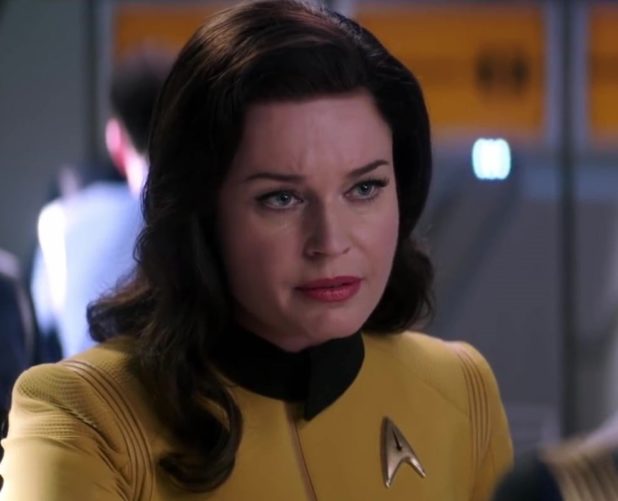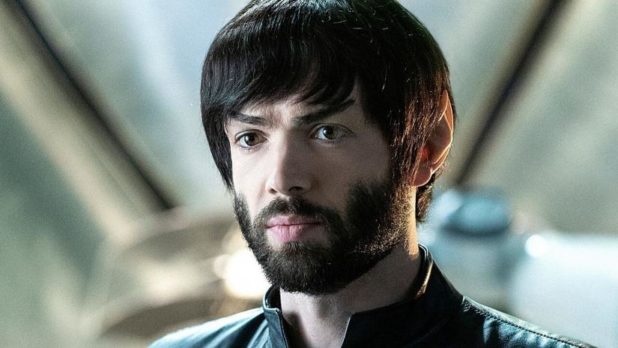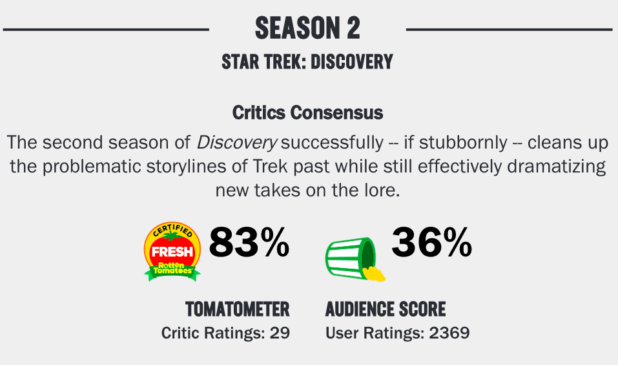Andrew Anglin
Daily Stormer
February 13, 2020
Most modern right-wing internet criticism of entertainment media is not really very in-depth or interesting. Most people look at this garbage coming out of Hollywood and Netflix, and their single critique is that it is filled with black people and women, as well as horrible “Trump bad” and “save the refugees” themes. However, if we are looking at it as art, that isn’t necessarily a problem. It is only if you are critiquing it from a social standpoint that the number of black people and women or the underlying value system being presented are an issue.
I am of course very interested in the way that art is being used to manipulate and reshape society, and the aggression with which this program is being implemented is shocking. But I am an artist and I am not a natural conservative (weak disgust response), so on a personal level, the first thing I look at when viewing a film or TV show is its artistic merit. Not surprisingly, however, the Venn diagram of overlap between “horrible social engineering project” and “terrible storytelling” is very tight.
For example, Star Trek: Discovery, created by Alex Kurtzman, the same Jewish individual who created Picard, was introduced in its first season as being all women, all the time, with the chief protagonist being an empowered black woman who is belligerently presented as the most important person in the universe.
There is also a homosexual character, who was raped by Kevin Spacey. If the show would have included him being raped by Kevin Spacey, it would have been a lot more interesting. There is also a fat woman, which I find inappropriate.
The entire crew was presented like a Social Justice college club.
There was only one moderately attractive woman, who was a minor character.
Unless you find Chinese MILFs attractive (I do, but this woman is pushing 60; looks great though).
The fact that there were no handsome men on the show might indicate that “no beautiful people allowed” was a theme or an underlying message. But it might also be simply that there weren’t really any men on the show.
The only straight white male main character in the show is actually Jewish, and he is menacing before he turns out to be evil.
There aren’t really any social justice themes in the show on first glance, and I didn’t glance twice. Unless you consider the cast itself to be a social justice theme, which I’m sure is the opinion of the writers and producers. Basically, the show appeared to be about the power of friendship. (Although the show was struggling with the concept of themes generally.)
However, all of that is neither here nor there, if we are simply looking at the quality of the storytelling.
As a fan of Star Trek, science fiction and good storytelling, what bothered me most about Star Trek: Discovery was simply how poorly written it was. The plot did not bother to attempt to make any sense. All of the themes which had ran through Star Trek from 1966 to 2005 were discarded, off-handedly, and fans of those series were accosted with a total butchering of everything the show represented. None of the characters were in any way moving, despite all of the crying, screaming and other melodrama.
There was nothing interesting about any of it, and it appeared that the writers believed that simply by presenting fighting and explosions, gross emotional displays and high-quality CGI, they were creating a viable product.
This show was given positive reviews by the review media because they liked the heavy-handedness with which women and diversity were presented. They appeared to have no concern for the actual quality of the storytelling. Audiences did not take as kindly to it as the social-engineering aficionados in the media, however.
What is interesting is that following the terrible reception of Season 1 by audiences, the show’s Jewish production team made the decision to switch things up and introduce a handsome white male lead, Anson Mount, who looks suspiciously like Mitt Romney.
He was masculine and an authority figure, and played the whole thing in a way that was very in-line with the old shows that I love.
The always elegant Rebecca Romijn was also introduced as Mount’s romantic interest.
Further, they added Spock, played by some guy, making the entire show about twice as white as it was in the first season.
The magical black woman who could do anything and was the most important person in the universe was relegated to a supporting role.
According to right-wing internet media commentator wisdom, these changes should have made the show significantly better. In actual fact, the show became much worse.
Reviewers still liked it (or claimed to), but the audience response was lower than you’re ever going to see on a show that has this high of a production value.
The writing was still horrible, and there was simply nothing redeeming in terms of storytelling. While they were attempting to correct course, it somehow managed to be even more convoluted and confusing than the first season.
The way this developed leads me to believe that the Jews producing the show have the same view on this media as internet right-wingers, and said “oh, the goyim are angry at the show! We’ll have to add more white people!” instead of replacing their writing team with competent people.
Of course, the reality is that just as they told very bad stories after adding a white male lead and other whites, it would have been possible to tell interesting stories with the first season cast of only women and blacks. You might not watch it, if you’re simply tired of all of this diversity, and no one could blame you for that, but the fact remains that the problems with this show are not fundamentally racial.
The conclusion I’ve come to is that these two separate issues – diverse casts and poor storytelling – get confused in the minds of the viewers of these shows because they almost always go together. What it seems is that the people who want to shove a social justice message down your throat simply are not capable of producing good entertainment.
I have been obsessed with the follow-up to Discovery, Star Trek: Picard, due to the mind-blowingly poor quality of the storytelling. The show also has the same issue of injecting all of these empowered women who proceed to walk all over the stupid and pathetic old white male main character. And it goes further, adding all of these heavy-handed moral messages about Donald Trump and refugees.
As I’ve watched the show, I’ve tried to imagine if I could write a good show where Jean-Luc Picard is an old man, who has been completely neutered and spends his days getting bossed around by women, and also include a pro-refugee and anti-Donald Trump message. And I am certain that I could do this. Because there is no specific reason why a show pushing a political agenda that I find distasteful cannot be good.
Conclusion
I personally do not crave media that panders to white people in the same way that this current media panders to minorities and women. I enjoy interesting, engaging and challenging media that presents characters and stories that I find interesting, even if I don’t agree with them.
Unfortunately, we are not likely to get non-diverse casts, political messages we agree with or good quality storytelling from Netflix or Hollywood any time soon. But most of us will continue to watch some of it here and there, if only to remain engaged with the larger culture, and we will continue to critique it. I think that our critique is going to be more powerful if we critique media as art, rather than by the white-black and male-female ratio of the cast, and pointing out why the stories that they are presenting are bad is hardly any more difficult than pointing to the fact that all of the white characters are being replaced with diversity.
 Daily Stormer The Most Censored Publication in History
Daily Stormer The Most Censored Publication in History


